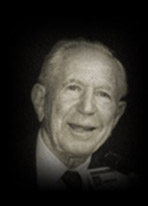Alexander Lowen (1910-2008)

This website was originally conceived as a resource for anyone interested in the ideas and practices of Alexander Lowen. It then became clear that it would be misleading to leave out Wilhelm Reich. Lowen received many of his basic concepts from Reich, but he added grounding, both as a concept within the theory, and as an actual grounding of the tradition in common sense. Lowen seemed to always have been guided by the practical usefulness of these ideas and exercises.
Alexander Lowen's life spanned from the end of the Victorian era into the 21st century. His life and career spanned several wars, the depression, the coming and going of the 'sexual revolution', the ascendancy of greed from the 80's on, and the ascendancy of technology from the 90's on. Like Reich, he addressed not only the effects of the family and individual situation on development, but also the effects of social forces.
Unlike Reich, however, he did not come to the conclusion that the first order of business was to change society. He came rather to the conclusion (the same as Abraham Maslow) that the task of a healthy individual was to live within a society without necessarily being formed by the values of that society. The basic elements of human happiness have not changed for millennia, but the way in which a person obtains those elements are affected by the culture in which he lives.
Lowen also was a much more systematic thinker and writer than Reich, and so his work has a feel of completeness or sufficiency about it. It also functions more easily as source book for actual men or women seeking practical steps in changing a life. Though Lowen doubtless responded to criticisms by refining and sharpening his theory, in his writing he avoids distracting polemical digressions and stays on the topic in a positive way.
Lowen first started working in therapy about 1942. He attended medical school from 1946-1951. As mentioned above, he developed his ideas and practices from Reichian roots, adding a great deal of common sense, everyday observation, and trial and error with expressive techniques. In the late 1960's his worked ballooned in popularity, but the popularity receded in the early 1980s as the culture turned away from freedom back toward money, fame, and power and control. One of the many things that stand out in his biography is how little the popularity of a notion alone swayed him.